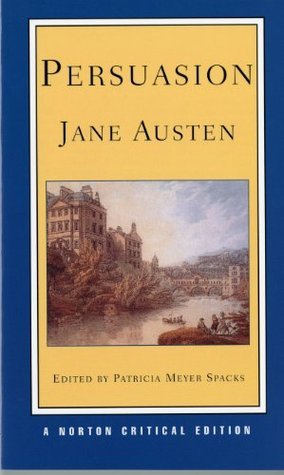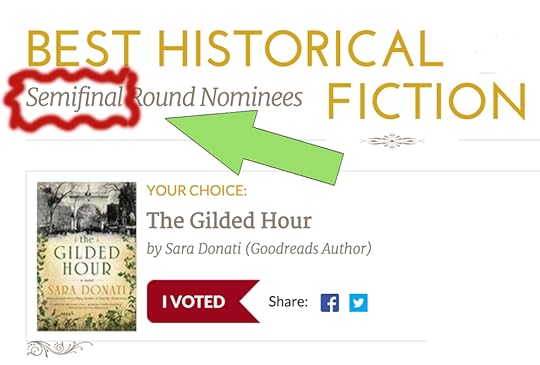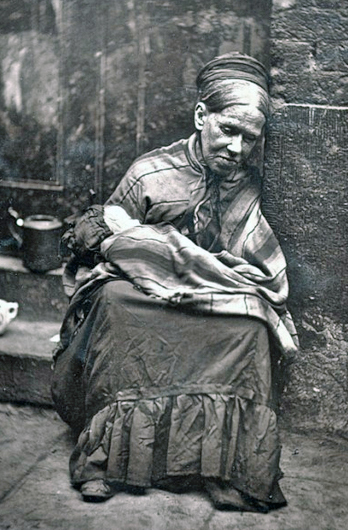Rosina Lippi's Blog, page 12
December 9, 2015
audiobooks & too much information (with video!)
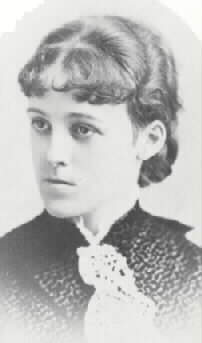
R-Less Edith Wharton
I’ve been trying to concentrate on writing so I haven’t been posting very often. But something has been on my mind for a while and I thought this would be the best way to resolve it — in my head, at least.
If you have read this weblog for any length of time you’re most likely aware that I was a professor of linguistics for twelve years before I started writing full time. Linguistics is a huge field — everything from the neurology of speech production to reconstruction of ancient languages to universals in syntax. My field has to do with the sociocultural aspects of language, or sociocultural anthropological linguistics (how’s that for a mouthful?).1 The Santa Barbara campus of the UC system has what I consider to be the best program in the field, and this is part of their short description:
Encompassing research traditions including sociolinguistics, linguistic anthropology, discourse analysis, and others, sociocultural linguistics focuses on how discourse mediates the enactment of social life and the construction of the social world.
A couple more basic points: all spoken language changes; all spoken language varies over different kinds of social space. All that just to preface what I’m about to say.
When they started doing the audiobook recordings for the Wilderness novels, it never occurred to me to worry about the varieties of English (or, more simply, the accents) spoken by the characters, and therefore, by the reader. Simply because we don’t know enough about the way English was spoken on the New York frontier in 1792. But we do know more about the sounds of spoken English in 1883 — primarily because some of the people born in the mid 19th century were still around into the 1960s or longer, and their voices have been preserved on tape.2
My point (and I do have one) is that in my mind, I have an actual sense of the way Anna Savard spoke English. In late 19th century Manhattan, the accent was much like the current day New England accents. The most tangible feature is the loss of /r/ after a vowel — as in John F. Kennedy’s infamous “Paak the caah in Haaavad yaad” (this is referred to as rhoticity). There’s a very good short video on Youtube on the history and evolution of urban accents over time that provides good examples of rhotic and non-rhotic pronunciations.3 And here’s an example of the way linguists have fun: an article about a study of rhoticity in Hollywood films over time:
Elliott, N. (2000) “A Study in the Rhoticity of American Film Actors.” In R. Dal Vera (ed.) Standard Speech and Other Contemporary Issues in Professional Voice and Speech Training. New York: Applause, pp. 103–130.

Where /r/ disappears after a vowel for some part of the population, depending on age, socioeconomic allegiances, location, and communication network integration.
Anna would sound more like Katherine Hepburn or Bette Davis, who were both born to upper class families in Massachusetts. The videos below were recorded when they were both quite old, but the accent still comes through, primarily the loss of /r/ after a vowel, the raising and backing of some vowels, and intonation.
So if I had been able to dictate how Cassandra Campbell voiced Anna — and other women of that time and place — in the recording of The Gilded Hour, I might have said “Do your best Katherine Hepburn.” And that would have been a disaster, because unless you’ve studied the evolution of American English on the east coast, it would sound utterly wrong to you. Technically closer to fact, yes. But not a good idea.
There are no audio recordings of Edith Wharton’s voice, which is a shame, because while she was of a higher social class than Anna Savard, an argument could be made that they would have been very close in the way they spoke.
I’m very happy with the unabridged audio recording of The Gilded Hour, but when I listen to it, this issue always comes up for me. Some days it would be good to be able to forget my education.
My best-known publication is English with an Accent: Language, Ideology and Discrimination in the U.S. and here’s a pdf excerpt if you’re so inclined. ↩
There are a few recordings of the human voice around this time, but the technology was in its infancy and the quality is very poor (for example, this recording of President Benjamin Harrison whose term ran from 1889 to 1892). ↩
Some of the explanations I would quibble with, but all in all it’s a good overview. Less serious but a lot of fun: Shit Boston Girls Say and Shit Italian Moms Say. The accents are right on target. ↩
Tweet
The post audiobooks & too much information (with video!) appeared first on storytelling.

November 10, 2015
Manhattan in the 1880s: A very big map
 Clicking on the map to the left will download a very large jpg of the original: 4,798 x 12,960 pixels or 28.9 MB. I am posting it for those ocd types (like me) who want a full sized, detailed map of the area relevant to The Gilded Hour.
Clicking on the map to the left will download a very large jpg of the original: 4,798 x 12,960 pixels or 28.9 MB. I am posting it for those ocd types (like me) who want a full sized, detailed map of the area relevant to The Gilded Hour.
Note that there is a legend, as well as notes in various spots. If you do download it, you may find it easiest to look at in a browser window (most browsers will allow you to open an image file) at full size. There are both real or historical and fictional locations on the map.
Tweet
The post Manhattan in the 1880s: A very big map appeared first on storytelling.

November 9, 2015
Goodreads Best Historical Fiction
If you took the time to go over to Goodreads and vote for The Gilded Hour in the historical fiction category, many thanks. Looks like we made it through to the semifinals. It strikes me as a little odd that all the nominated novels got through to the semifinals, but what do I know?
If you have a few minutes and are willing to pop over there again to vote, maybe The Gilded Hour can make it to the finals.
Tweet
The post Goodreads Best Historical Fiction appeared first on storytelling.

November 7, 2015
Newspapers & Racism in the 1880s
 It won’t come as a surprise that there was blatant racial discrimination in the 1880s, but once in a while I am still taken aback by things I come across in the newspapers of the times.
It won’t come as a surprise that there was blatant racial discrimination in the 1880s, but once in a while I am still taken aback by things I come across in the newspapers of the times.
In this case (click for a larger image) on 23 December 1883, the New York Times reports (page 3) that a woman is seeking a divorce because she came across evidence that her husband of a short while is part African American (that is, a mulatto). She first claims she had never heard of such a thing, and then claims that the very idea gives her great distress. She sues for divorce. Stories about mixed race marriages show up on a regular basis (He married a Mulatto!) and are generally short. Most of the feature outraged family.
What is surprising here is that the paper argues that if women were to ask for divorce solely because they find their in-laws objectionable in some way, things would quickly get out of hand.
I’m unclear on what to make of this: is it meant to hold her up for ridicule as ignorant, or prejudiced?
Then weeks later there is a front page, two-column article in the same paper with the provocative title “The Real Southern Darky: A He Coon, A She Coon, and a Lively Young Coon” dated 3 February 1884. It is as fine a crude and moronic piece of Amos-n-Andy or minstrel-show performance as you could find anywhere .
The final piece for comparison is from a Michigan newspaper and dated 1880. In Toronto a woman of mixed ancestry, someone hired to teach on a temporary basis (as a substitute, it seems from the wording) in a white school, faces but overcomes racism in the community.
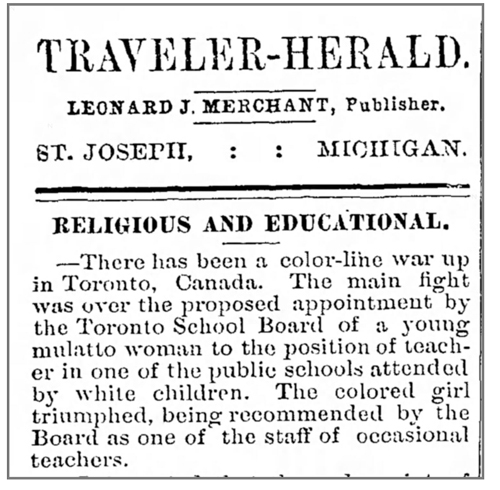
10 January 1880
Things are never straight-forward, and generalizations are dangerous.
Tweet
The post Newspapers & Racism in the 1880s appeared first on storytelling.

November 6, 2015
The Typewriter Girl: review
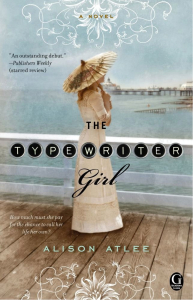 This is Alison Atlee’s first novel, a historical. And a romance. It came out in 2013 but just recently worked its way to the top of my tbr pile. The cover description:
This is Alison Atlee’s first novel, a historical. And a romance. It came out in 2013 but just recently worked its way to the top of my tbr pile. The cover description:
ALL BETSEY DOBSON HAS EVER ASKED IS THE CHANCE TO BE VIEWED ON HER OWN MERITS, BUT IN A MAN’S WORLD, THAT IS THE UNFORGIVABLE SIN
When Betsey disembarks from the London train in the seaside resort of Idensea, all she owns is a small valise and a canary in a cage. After attempting to forge a letter of reference she knew would be denied her, Betsey has been fired from the typing pool of her previous employer. Her vigorous protest left one man wounded, another jilted, and her character permanently besmirched. Now, without money or a reference for her promised job, the future looks even bleaker than the debacle behind her. But her life is about to change . . . because a young Welshman on the railroad quay, waiting for another woman, is the one man willing to believe in her.
On the surface this looks like a fairly typical historical romance. Young woman at the end of her rope, handsome man gives her what she needs to get back on her feet, conflict, conflict, conflict, happy ending.
It always irritates me when a review starts with “predictable” because hey, if you pick up an espionage novel, you can predict who the main players and what the stakes will be; if you pick up a novel with a vampire on the cover, you can predict the nature of the beast within. If you’ve never read Jane Austen or Charles Dickens, let me give you a hint: people fall in love in Austen’s novels; social injustice is revealed and dealt with in novels written by Dickens. If you decide to read Romeo & Juliet and you don’t bother to read any blurbs or see any movies before hand, you might be surprised to find out that it’s a tragedy, which means (predictably) that all the main characters die.
So if you read the blurb on this book, you know it’s a romance. Two people will fall in love, that’s a given. But you don’t know the characters, how they’ll interact, what kind of conflicts will come their way. You know the destination, but the journey will be new to you.
I would like to see the word predictable used a lot less in reviews of novels. It’s a lazy way to say the novel didn’t work for you, or you didn’t want to put work into the novel. If you’re going to review a novel, review it, gotdammit.
Now that’s out of my system.
This is a great novel. The characters are complex (very complex), nothing like the run-of-the-mill historical romance characters (and such characters and novels do exist, hundreds of them – which is why a novel like this stands out). Betsey is all too aware of the way men think about sex and she’s not above using it to her advantage because, to be fair, she’s got so few tools and next to no advantages in the time and place where she finds herself. She’s a realist. She’s pragmatic. She’d like to eat, and have a safe place to live, but she would also like to make something of herself, and that is the challenge.
She takes steps to find a way out of the life she’s destined for. Things conspire against her. She doesn’t give up. No fairy godmother comes to bail her out. She could end up a street walker, she knows this, but she’s not willing to sit back and let life happen to her. So she takes chances. Big ones.
I really like this Betsey. Quite a few Amazon reviewers don’t like her because (shock) she thinks of sex as fucking. That’s the word that comes to her mind. In her time and place, what else would you expect? This is not a sheltered earl’s daughter. But some readers won’t credit historical fiction that falls outside very narrow boundaries. They want a historical fiction universe in which the verb to fuck does not exist. How boring, say I.
Because let me tell you: Alison Atlee has done her research, and she’s not going to pull punches. If you want a fairy tale, this is not the story for you. Here’s another thing Atlee knows how to do that many cannot pull off, even after many years of writing: she can write a sex scene that goes wrong. It’s not all orgasms and sweet talk. Sometimes it’s hey you’re kneeling on my hair. That’s hard to write, and more than that: it’s hard for characters to recover from. But Atlee handles all that with aplomb.
So we have here a couple fantastic characters who are not (cough) predictable, who will (predictably) fall in love, but who find interesting ways to get to that conclusion. There’s wonderful scene setting in awful London and a quirky seaside resort. There are moments of panic where you might think, oh no, this is never going to work out.1
So go read this novel. I highly recommend it. I hope Atlee is writing another one, because I anticipate great things from her. And I wish her millions of thoughtful, open minded, willing-to-be-surprised readers.
Anybody who re-reads Jane Austen knows, it doesn’t matter how many times you’ve worked your way through Persuasion or Pride and Prejudice, you still get panicky at a certain point and wonder if maybe somehow you imagined all those previous readings in which Love Works. And you’re relieved when that ending comes along. Every time, you’re relieved. It’s magic. ↩
Tweet
The post The Typewriter Girl: review appeared first on storytelling.

November 4, 2015
wise guys: words on writing and writers
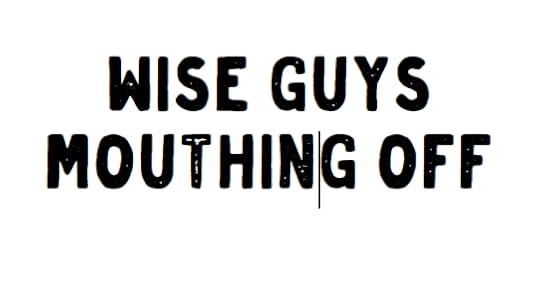 I used to have my collection of writing quotes on the right sidebar. They rotated, which jolted the page, which some people found irritating. So I took them off. But I still add to them now and then (I added one today, as a matter of fact) and I decided to put them here all at once. Do you have a favorite among these? Do any of them strike you as off? If you have a favorite that isn’t here, please put it in the comments.
I used to have my collection of writing quotes on the right sidebar. They rotated, which jolted the page, which some people found irritating. So I took them off. But I still add to them now and then (I added one today, as a matter of fact) and I decided to put them here all at once. Do you have a favorite among these? Do any of them strike you as off? If you have a favorite that isn’t here, please put it in the comments.
…Yet readers still want to wonder what happened next, and unless you make them wonder, they will not turn the page. You must master plot, because no matter how profound or illuminating your vision of the world may be, you cannot convey it to those who do not read you.
— Janet Burroway, Writing Fiction
A writer’s brain is like a magician’s hat. If you’re going to get anything out of it, you have to put something in it first.
— Louis L’Amour
A story is told as much by silence as by speech.
— Susan Griffin, Straight
Rule one of reading other people’s stories is that whenever you say ‘well that’s not convincing’ the author tells you that’s the bit that wasn’t made up. This is because real life is under no obligation to be convincing.
— Neil Gaiman
The only end of writing is to enable the readers better to enjoy life, or better to endure it.
— Samuel Johnson
We do not write in order to be understood, we write in order to understand.
— Cecil Day-Lewis
It takes a heap of loafing to write a book.
— Gertrude Stein
Writing a novel is like driving a car at night. You can see only as far as your headlights, but you can make the whole trip that way.
— E.L. Doctorow
I hate writing; I love having written.
— Dorothy Parker
Only a mediocre writer is always at his best.
— W. Somseret Maugham
People have writer’s block not because they can’t write, but because they despair of writing eloquently.
— Anna Quindlen, NYT, 9.23.02
A writer is someone for whom writing is more difficult than it is for other people.
— Thomas Mann
Being a writer means having homework for the rest of your life.
— Lawrence Kasdan
There are three rules for writing the novel. Unfortunately, no one knows what they are.
— W. Somseret Maugham
Easy reading is damn hard writing.
— Nathaniel Hawthorne
Those who write clearly have readers, those who write obscurely have commentators.
— Albert Camus
If it sounds like writing, I rewrite it.
— Elmore Leonard
Literature is strewn with the wreckage of men who have minded beyond reason the opinion of others
— Virginia Woolf
The secret of being a bore is to tell everything.
— Voltaire
So the writer who breeds more words than he needs, is making a chore for the reader who reads.
— Dr Seuss
You have brains in your head. You have feet in your shoes. You can steer yourself, any direction you choose.
— Dr Seuss
Writing: the only time in your life when you really are Master of a Universe.
— Lynn Viehl
Storytelling reveals meaning without committing the error of defining it.
— Hanna Arendt
I had the story, bit by bit, from various people, and, as generally happens in such cases, each time it was a different story.
— Edith Wharton, Ethan Frome 1911
I try to leave out the parts that people skip.
— Elmore Leonard
The difference between the right word and the almost right word is the difference between lightning and a lightning bug.
— Mark Twain
A synonym is a word you use when you can’t spell the other one.
— Baltasar Gracián
Writing is both mask and unveiling.
— E.B. White
It’s all a draft until you die.
Fiction is the truth inside the lie.
— Stephen King
The difference between the right word and the almost right word is the difference between lightning and a lightning bug.
— Mark Twain
Cut out all these exclamation points. An exclamation point is like laughing at your own joke.
— F. Scott Fitzgerald
The most valuable of all talents is that of never using two words when one will do.
— Thomas Jefferson
The business of the novelist is not to relate great events, but to make small ones interesting.
— Arthur Schopenhauer
The pages are still blank, but there is a miraculous feeling of the words being there, written in invisible ink and clamouring to become visible
— Vladimir Nabokov
Inspiration exists but it has to find you working.
— Pablo Picasso
The writer’s job is to get the main character up a tree, and then when they are up there, throw rocks at them.
— Vladimir Nabokov
PLOT: it builds character.
The mark of a true writer is their ability to mystify the familiar and familiarize the strange.
— Walt Whitman
Writing a book is a horrible, exhausting struggle, like a long bout of some painful illness. One would never undertake such a thing if one were not driven on by some demon whom one can neither resist nor understand.
— George Orwell, Why I Write
Each writer is born with a repertory company in his head. Shakespeare has perhaps 20 players. … I have 10 or so, and that’s a lot. As you get older, you become more skillful at casting them.
— Gore Vidal, Dalls: Times Herald. 18 June 1978
Everybody walks past a thousand story ideas every day. The good writers are the ones who see five or six of them. Most people don’t see any.
— Orson Scott
If you don’t have time to read, you don’t have the time (or the tools) to write. Simple as that.
— Stephen King
There is only one plot—things are not what they seem.
— Jim Thompson
Tweet
The post wise guys: words on writing and writers appeared first on storytelling.

November 3, 2015
Goodreads Awards Nomination for Gilded Hour
 Here’s a bit of an email I got from
Here’s a bit of an email I got from
Goodreads
today:
Dear Sara,
Are you sitting down? Good: Your book has been nominated for a Goodreads Choice Award!
The Goodreads Choice Awards are the only major book awards decided by readers. We poured over statistics from the millions of books added, rated, and reviewed on Goodreads in 2015 to select 15 nominees in 20 different categories ranging from Romance to Science Fiction to Mystery & Thriller.
The Opening Round kicks off today, and there are two more rounds of voting before the winners are announced December 1st.
Rally your friends, family, and most importantly, your fans to increase your odds of winning.
So here I am, rallying. If you have a moment to pop over there and vote for The Gilded Hour, please do. You’ll find it with the ‘historical fiction’ nominees.
And while I’ve (1) got your attention and (2) am already in blatant self promotion mode, let me tell you that The Historical Novel Society’s November 1 issue has both a glowing review and a feature article about The Gilded Hour.
An excerpt from the review:
This is a sweeping, captivating novel that continues the Bonner heritage by focusing on two female descendants of Nathaniel Bonner. There is a dark mystery involved, and the plight of orphaned immigrant children in New York receives much attention. Donati is a master at weaving real-life people into her stories, and she does it superbly in this novel. Above all, however, are the characters themselves, finely drawn and deeply emotional, making you experience their lives and feel their challenges acutely.
This is an outstanding first novel in a new series, and with it comes all the best feelings evoked by good writing: empathy, concern, drive, despair, and ecstasy. It’s the beginning of the best of journeys in historical fiction.
#GoodreadsChoice
Tweet
The post Goodreads Awards Nomination for Gilded Hour appeared first on storytelling.

November 2, 2015
Talking Heads: Poll & Giveaway
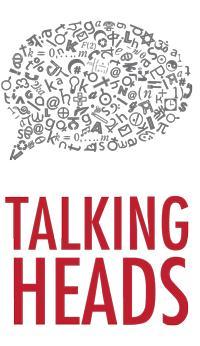
I borrowed this great graphic from a South African public festival advertisement.
For years now I’ve been wondering what to do about this weblog, which I started in 2001. There are lots of weblogs out there that are busier than this one — I have had longer dry spells — but as of right now there are 1,214 posts and 7,978 total comments.
I know those numbers are off, because somewhere along the line various posts were mysteriously deleted, or, more oddly still, conflated. For example: I remember writing a long post about the controversial cinematic term Magical Negro, but that post is lost, probably for good. I have no idea how it got lost, when that happened, or where it might be hiding. But I know I’m not imagining it because there were a lot of comments and the comments are still here, but attached to a completely different post.
So I’m alway wondering if I should archive everything here and start fresh. I wonder, but I don’t make any moves in that direction for about a hundred different reasons mostly having to do with the headache I get when I think about it for too long. What I have done is started a separate weblog for stuff related to the newest novel, which a lot of people visit, but quietly. All well and good.
As it seems this weblog will continue to bumble along, something should be done to celebrate and to thank you for all those comments — but I’ll let you decide what. Please tell me what you think by answering the poll, and/or, leaving a comment. Which will bring us closer to the magical 8,000.
Note: There is a poll embedded within this post, please visit the site to participate in this post's poll.
Tweet
The post Talking Heads: Poll & Giveaway appeared first on storytelling.

October 31, 2015
Realities: Manhattan 1880s
There were indeed rich women who loved cats so much that they made hats out of them. Kate Fearing wore this cat-hat (I assume it came out of a taxidermist’s shop) to the Vanderbilt costume ball in March 1883.

Kate Fearing and Puss
Poverty was deep and pervasive and heartbreaking.*
Prostitution was another fact of life. It was illegal, but tolerated to the degree that women told the census taker what they did for a living.

101 Forsyth Street. 1880 Census for Mary Brown, Keeper of a House of Ill Repute, and the nine prostitutes in her employ.
For those of you who have read The Gilded Hour and were wondering about the Mezzanotte florist shop, here’s a postcard that gives you an idea of the kind of thing you would find in Manhattan:
I’ll be adding to this list now and then.
*Usually I keep notes about images I come across, but not in this case. If you recognize the photo, please let me know.
Tweet
The post Realities: Manhattan 1880s appeared first on storytelling.

October 20, 2015
Novels I Re-read. And Will Again.
I was so dissatisfied with GoodReads and the way their lists work, I decided to do the list on my own. And once I started this, I had to finish. OCD, and all that. I should have spent this hour writing, but hey.
So this is a long list of novels I have read more than once and probably will read again. Even multiple times. It’s a long list, but I’m sure I’ve missed dozens. As I remember them, I’ll add them. You will note that my tastes are broad and eclectic. Also, I haven’t included anything before about 1800, because I might admire Jonathan Swift, I don’t envision sitting down to re-read Gulliver anytime soon. Maybe you’ll find something here you decide to read, and then like. Or hate. Either way, I hope you’ll come back and say so.
Adams, Richard
The Girl in a Swing
